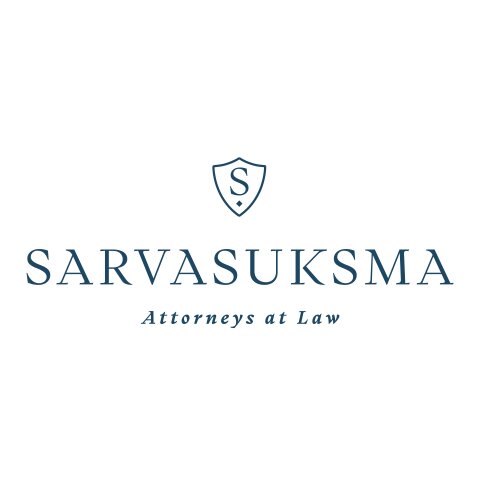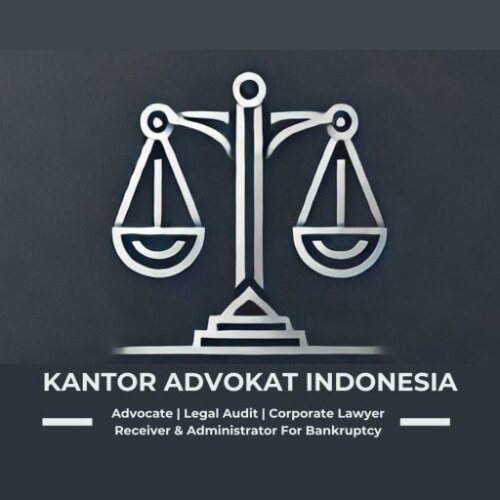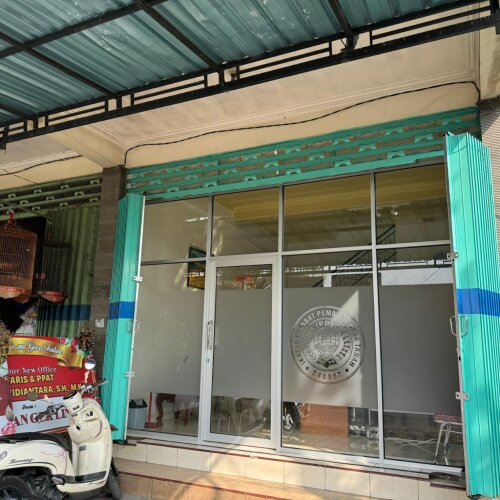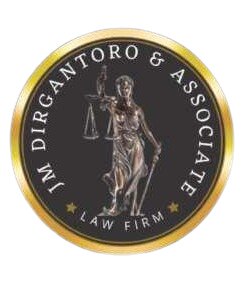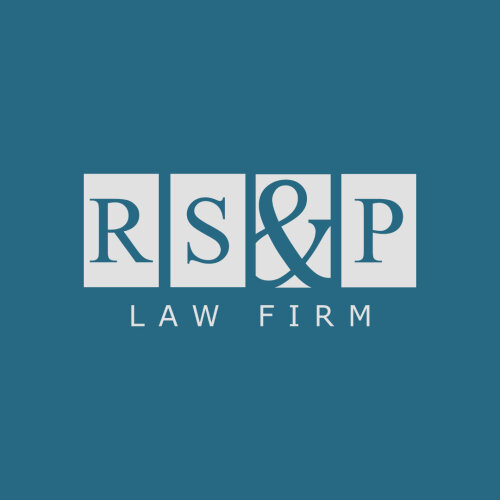Best Sanctions & Export Controls Lawyers in Indonesia
Share your needs with us, get contacted by law firms.
Free. Takes 2 min.
Or refine your search by selecting a city:
List of the best lawyers in Indonesia
About Sanctions & Export Controls Law in Indonesia
Sanctions and export controls in Indonesia refer to the regulations and restrictions placed by the government on trade, export, and import activities, especially involving goods, technology, services, and parties from certain countries or entities. These legal frameworks are designed to enforce foreign policy objectives, uphold national security, and fulfill international obligations, such as United Nations resolutions. Indonesia implements these laws to control the movement of sensitive or strategic goods, prevent the proliferation of weapons, safeguard dual-use items, and ensure that trade does not support activities that are considered illegal or contrary to national and international interests.
Why You May Need a Lawyer
Navigating sanctions and export controls law in Indonesia can be complex and challenging. Legal assistance may be necessary in a variety of situations, including:
- When your business is exporting goods, technology, or services that may be subject to restrictions or licensing.
- If you are dealing with international transactions involving countries or entities under sanctions.
- When receiving inquiries or notices from Indonesian authorities regarding your trade activities.
- If your goods are detained at customs due to suspected regulatory violations.
- When your company operates in sectors like defense, technology, chemicals, or dual-use items that are closely monitored.
- If you face allegations of breaching export control regulations or sanctions laws.
- When seeking to understand due diligence requirements for partners and clients in international business.
- If you need guidance on reporting obligations, license applications, or self-disclosure to authorities.
- To keep up with regular updates and changes to regulations that impact your trade activities.
A lawyer specializing in sanctions and export controls can help you avoid legal, financial, and reputational risks by ensuring compliance and providing strategic advice.
Local Laws Overview
In Indonesia, sanctions and export control measures primarily stem from several laws and regulations, including:
- Law No. 7 of 2014 on Trade, which empowers the government to impose export and import restrictions and licensing requirements for certain goods.
- Government Regulation No. 85 of 2015 on Import and Export of Dangerous Goods regulates items deemed hazardous to national security or public interest.
- Law No. 10 of 1995 and its amendments on Customs, emphasizing enforcement against illegal exports and imports.
- Laws concerning the control of dual-use goods such as chemicals, technology, and equipment that could have military or civilian applications.
- Regulations implementing international sanctions, especially those adopted by Indonesia as a member of the United Nations.
Key regulatory bodies include the Ministry of Trade, Directorate General of Customs and Excise, and the Ministry of Foreign Affairs. Exporters and importers must abide by licensing regimes, declare goods truthfully, and comply with screening processes for restricted destinations or parties. Non-compliance may result in administrative penalties, fines, suspension of licenses, seizure of goods, or criminal sanctions.
Frequently Asked Questions
What are sanctions and export controls?
Sanctions are measures restricting or prohibiting trade with certain countries, individuals, or entities, often for foreign policy reasons. Export controls regulate the movement of specific goods, services, or technologies to protect national security and fulfill international obligations.
Who administers export controls in Indonesia?
The Ministry of Trade, Ministry of Foreign Affairs, and Directorate General of Customs and Excise share responsibility for administering and enforcing these rules.
Do all exports from Indonesia require a license?
No. Only certain goods, especially strategic, hazardous, or dual-use items, require licenses. It is essential to check whether your goods fall under controlled categories before exporting.
How can I check if my trade partner is under sanctions?
You should conduct due diligence by reviewing lists published by the Indonesian government and United Nations, and by consulting with legal experts for up-to-date screening.
Can companies be penalized for violating export control laws?
Yes. Violations can result in administrative, civil, or criminal penalties, including fines, imprisonment, loss of export privileges, or asset forfeiture.
Do Indonesian regulations cover re-exports or transshipments?
Yes. Certain regulations extend to the re-export or transshipment of goods through Indonesia, particularly for items under international control or sanctions regimes.
Are there specific industries more affected by these regulations?
Yes. Sectors such as defense, chemicals, nuclear, electronics, telecommunications, and pharmaceuticals often face more stringent controls due to the sensitive nature of their products.
How often are Indonesian sanctions and export controls updated?
Regulations may change in response to international developments and national security considerations. It is important to monitor official announcements and seek legal counsel regularly.
Is there an appeals process if my goods are detained?
Yes. You can submit an appeal or clarification request to the relevant authority, such as the Directorate General of Customs and Excise, sometimes with legal representation.
What steps should I take to comply with export controls?
Establish internal compliance procedures, conduct regular training, screen trade partners, apply for necessary licenses, and consult with legal professionals to minimize risks.
Additional Resources
The following organizations and resources can provide further information or assistance:
- Ministry of Trade (Kementerian Perdagangan) - oversees trade regulations and export licensing
- Directorate General of Customs and Excise - customs law enforcement and border controls
- Ministry of Foreign Affairs - implements international sanctions and provides policy guidance
- Indonesia National Single Window (INSW) - for regulatory information on import-export documentation
- Indonesian Chamber of Commerce and Industry (KADIN) - support for exporters and trade compliance
- Legal aid organizations and accredited law firms specializing in sanctions and export controls
Next Steps
If you require legal assistance related to sanctions and export controls in Indonesia, consider the following steps:
- Consult with a qualified lawyer experienced in international trade, customs, or corporate compliance matters.
- Gather documentation and details about your business activities, products, or transactions before seeking advice.
- Contact relevant authorities or business associations for preliminary guidance or clarification on your obligations.
- Ensure your internal compliance team is informed about up-to-date regulations and seek regular training if necessary.
- Take prompt action if you receive notices or inquiries from authorities to protect your rights and minimize penalties.
Professional legal advice can help you understand your responsibilities, mitigate risks, and maintain smooth international business operations within the boundaries of Indonesian law and international commitments.
Lawzana helps you find the best lawyers and law firms in Indonesia through a curated and pre-screened list of qualified legal professionals. Our platform offers rankings and detailed profiles of attorneys and law firms, allowing you to compare based on practice areas, including Sanctions & Export Controls, experience, and client feedback.
Each profile includes a description of the firm's areas of practice, client reviews, team members and partners, year of establishment, spoken languages, office locations, contact information, social media presence, and any published articles or resources. Most firms on our platform speak English and are experienced in both local and international legal matters.
Get a quote from top-rated law firms in Indonesia — quickly, securely, and without unnecessary hassle.
Disclaimer:
The information provided on this page is for general informational purposes only and does not constitute legal advice. While we strive to ensure the accuracy and relevance of the content, legal information may change over time, and interpretations of the law can vary. You should always consult with a qualified legal professional for advice specific to your situation.
We disclaim all liability for actions taken or not taken based on the content of this page. If you believe any information is incorrect or outdated, please contact us, and we will review and update it where appropriate.
Browse sanctions & export controls law firms by city in Indonesia
Refine your search by selecting a city.






